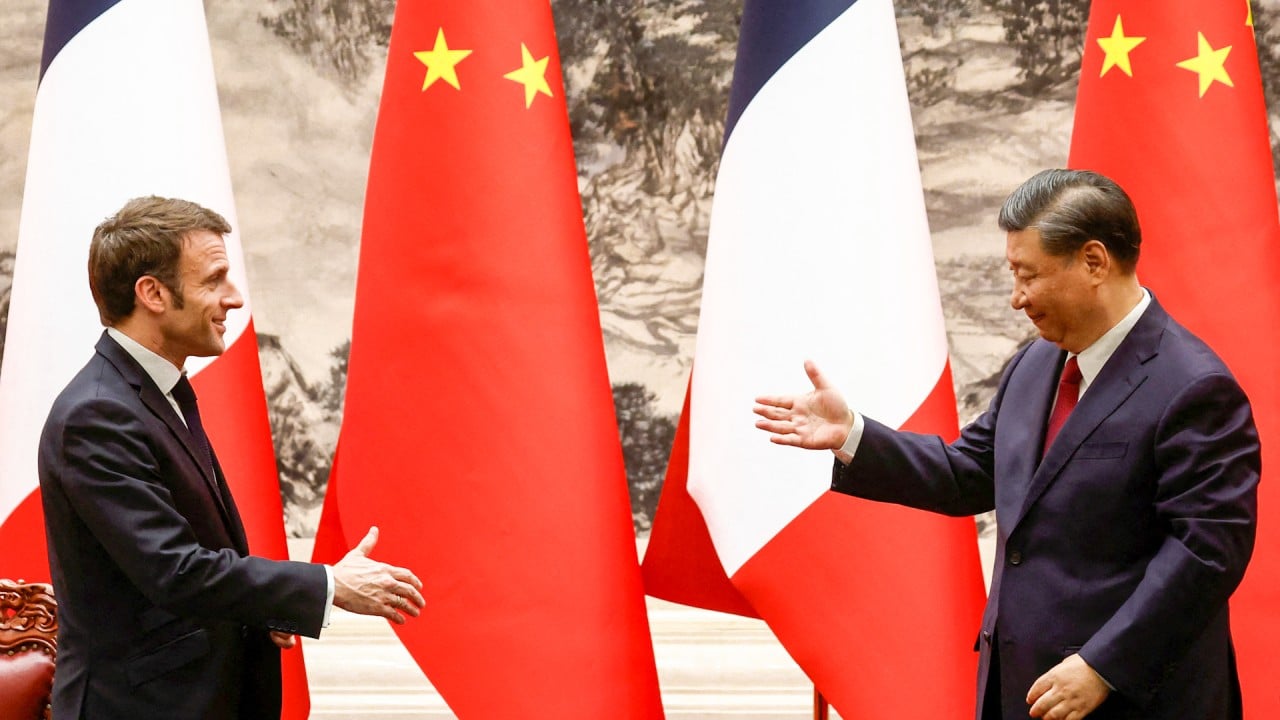
Together, China and France can build bridges between the West and the rest
- The governance that was set up by the victors of World War II no longer reflects the actual balance of powers
- France and China, two countries deeply attached to multilateralism, can play a role in establishing a global order that better reflects the new reality
The US’ interests do not necessarily overlap with European interests. As President Emmanuel Macron has stressed, we need to work with China for peace, prosperity and to deal with climate change. Xi’s visit was an opportunity to update the China-France relationship.
De Gaulle’s decision was to consider the reality of “the world as it is”. Nowadays it seems we are in a comparable situation in a tremendously changed world. Our reality today is that the governance that was set up by the victors of World War II no longer reflects the actual balance of powers.
The international institutions of the United Nations don’t function efficiently. Emerging powers perceive double standards against them. Demographic trends are mostly in favour of the Global South where young populations are striving for justice and respect for their own cultures.
Therefore, we should consider what the new bridges between the West and the Global South could look like. France and China, two countries deeply attached to multilateralism, could play their part and set up a revitalised multilateral order to better reflect the balance of forces.
We must find a way to settle this issue. Everyone in Europe agrees that we need the Chinese market and Chinese technology, while China has shown interest in maintaining a strong trade relationship with the EU. In a message before his visit, President Xi Jinping signalled that China is ready to work with France in clean energy and other areas which are part of the answer to climate change.
In this spirit, we must encourage our companies to work together on the technologies of the future, such as artificial intelligence and biotech. The point here is to work on the norms and standards that will apply in regions where there will be growth in the future – Asia and the Pacific, but also Africa and the Middle East.
Let’s keep in mind that our economies must grow even as they abide by the commitments made by every country at Cop28 as tackling climate change remains a common purpose for the future of humanity.
Stability remains a major challenge. We need to exchange views to establish a new world order based on multilateralism and sustainable security guarantees.
Regarding the Israeli-Palestinian conflict, France and China should work together to promote the two-state solution, as the countries did during the UN Security Council’s vote on recognising Palestine as a state. Why not work on what should be the security guarantees for both sides? China is a key player on the world stage and could make a great contribution alongside France and others.
Let’s not disregard the tensions in the Taiwan Strait and the South China Sea that could have a global impact, as freedom of navigation is crucial at a time of growing maritime traffic. France favours the status quo and sticks to the principle of the one-China policy.
In these times of tension, France and China must pursue a reinforced strategic dialogue that contributes to peace, stability, prosperity and development, and keep the trust without which there is no sustainable future in a globalised world.
Maurice Gourdault-Montagne was secretary general of the French Ministry of Foreign Affairs (deputy secretary of state) from 2017 to 2019. He was French ambassador in Tokyo (1998-2002), London (2007-11), Berlin (2011-14) and Beijing (2014-17)


